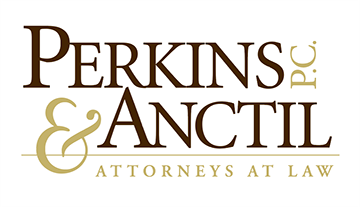On Monday, Governor Baker signed into law a bill to implement a moratorium on evictions and foreclosures throughout Massachusetts during the COVID-19 emergency. The moratorium halts all “non-essential” residential evictions for a period of 120 days or 45 days after the State of Emergency has been lifted, whichever occurs first. This action will drastically impact many of our client’s rights to send notices to quit or to advance summary process (eviction) proceedings.
The law broadly defines “non-essential” evictions as any eviction initiated for any of the following reasons: (1) eviction for non-payment of rent; (2) eviction resulting from a foreclosure; and (3) eviction for a cause that does not include or involve: (a) criminal activity that impacts health and safety; or (b) lease violations that impact health and safety. The moratorium prevents a landlord from terminating a tenancy, sending a notice to quit, and/or requesting or demanding that a tenant vacate the premises for any non-essential evictions. The moratorium further prevents the courts from accepting the filing of an eviction complaint, entering a default judgment for a landlord, issuing an execution for possession or even scheduling a court event or hearing.
While the law does not relieve tenants from the obligation to pay rent, no judicial action can be taken by the landlord to recover said payments until the moratorium has been lifted. Also, the law prohibits landlords from charging any late fees associated with late/unpaid rent during the moratorium period, and landlords may not report defaults to a credit reporting agency.
The new law does permit landlords to access any amounts held for “last month’s rent” to do the following: (1) make a mortgage payment; (2) pay for utilities; or (3) Perform repairs/property maintenance. However, before accessing any such amounts, the landlord must notify the tenant in writing and must indicate that the landlord used the funds before the last month of the tenancy, that the landlord is obligated to apply the funds used to the last month’s rent and the tenant is still entitled to interest on the last month’s rent.
In addition to residential tenancies, the moratorium also applies to certain small business commercial leases. The law protects certain “small business premises units,” which are defined as premises occupied by a tenant for commercial purposes, whether for-profit or not-for-profit; provided, however, that a small business premises unit shall not include a premises occupied by a tenant if the tenant or a party that controls, is controlled by or is in common control with the tenant: (i) operates multi-state; (ii) operates multi-nationally; (iii) is publicly traded; or (iv) has not less than 150 full-time equivalent employees.
Finally, the moratorium also restricts residential foreclosures throughout the Commonwealth. Mortgagees are prohibited from taking the following actions with respect to the foreclosure of a residential property which is not vacant or abandoned: (i) cause notice of a foreclosure sale to be published; (ii) exercise a power of sale; (iii) exercise a right of entry; (iv) initiate a judicial or non-judicial foreclosure process; or (v) file a complaint to determine the military status of a mortgagor under the federal Servicemember’s Civil Relief Act.
If you have any questions or concerns about this moratorium, please do not hesitate to contact our office. A copy of the bill can be found at the following link:
https://malegislature.gov/Laws/SessionLaws/Acts/2020/Chapter65.
